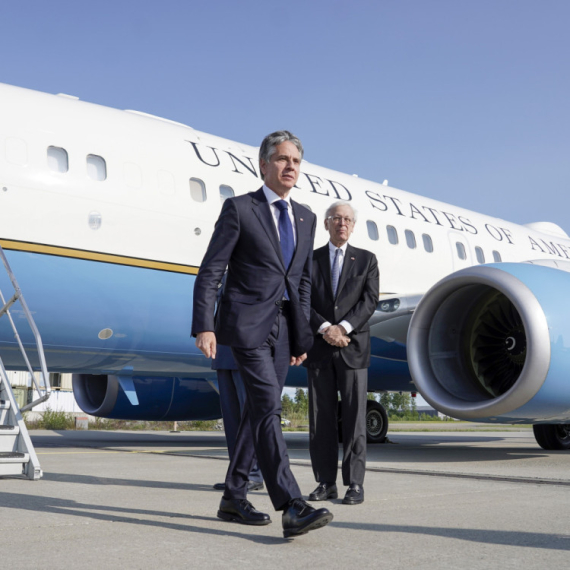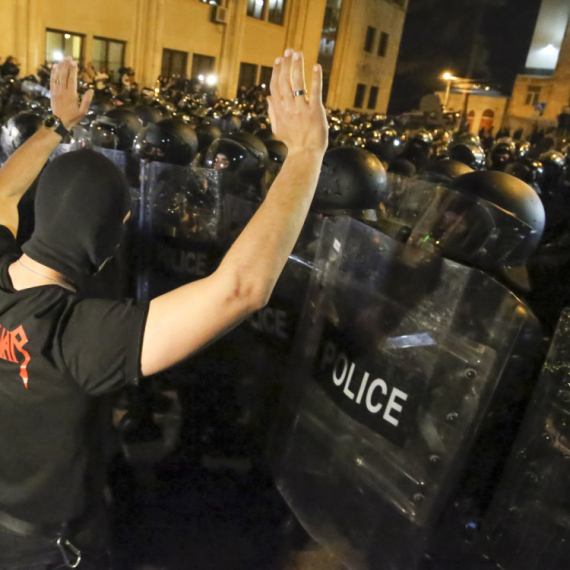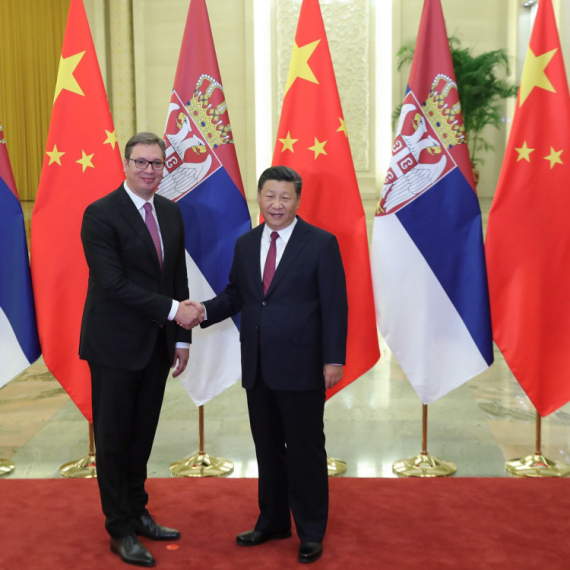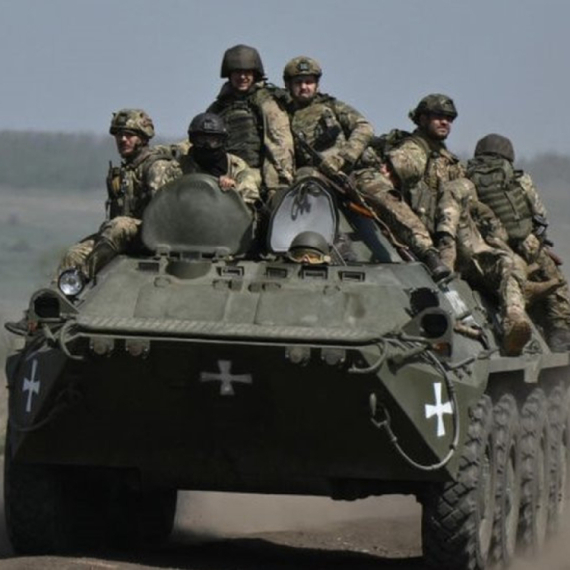Analysts: President fears opposition’s reaction
President Boris Tadić has strained his relations with the West regarding Kosovo primarily due to internal-political relations, daily Danas writes.
Monday, 06.09.2010.
11:55

President Boris Tadic has strained his relations with the West regarding Kosovo primarily due to internal-political relations, daily Danas writes. Surveys show that Kosovo is not at the top of the citizens’ list of problems but that there is a resistance towards a possible “trade”. Analysts: President fears opposition’s reaction The daily points out that the state head has strained relations with the West out of fear of unpredictable moves by Serbian Progressive Party (SNS) leader Tomislav Nikolic and Democratic Party of Serbia (DSS) leader Vojislav Kostunica. After the unfavorable opinion of the International Court of Justice (ICJ), the president and his advisers seem to be thinking more about how the citizens would react if Nikolic and Kostunica decided to manipulate the public opinion and persuade citizens that the government is trading Kosovo for EU accession. As a leader who is counting on the biggest possible support of the people, Tadic at the same time, cannot afford to lose either the image of a national interest defender or the image of a true pro-European politician. Political analyst Milan Nikolic told the daily that the government always fears the results of the next elections and that they always act in accordance with what people care about the most. He also confirmed that Kosovo was not among the citizens' highest priorities but also added that it was still not insignificant. “The most important thing is that the Kosovo issue is suitable for political exploitation because the citizens do not know what can actually be achieved on an international level. The opposition can say that DS (Democratic Party) did everything wrong and that it should have been doing things differently,“ Nikolic stressed. A survey from 2009 shows that most Serbian citizens have strong feelings and pragmatism regarding Kosovo. 73 percent are personally concerned about the Kosovo issue, 71 percent are convinced that “Kosovo should remain a part of Serbia“, while 15 percent disagree. 64 percent think that official Belgrade will never recognize Kosovo independence while 24 percent believe it would happen in the next 10 years. However, a relative majority, 43 percent, stated that “no matter what Serbs did“ Kosovo would be independent one day, while 39 percent disagrees with that notion. 45 percent see a partition of Kosovo as a possible solution while 40 percent think it is unrealistic. And finally, what is maybe the most important issue to the Serbian politicians' positions – 70 percent of citizens think “that it is out of the question that Serbia gives up on Kosovo for membership in the EU“. Some 16 percent could agree with such a proposed “trade”. Analysts also believe that the Serbian citizens “are more mature and realistic than politicians“ and that the Kosovo issue is finished for most of them. Extremists such as hooligan groups and extreme rightist organizations could be easily used for political purposes to act violently if the authorities do not act “patriotic enough“. The SNS leader told daily Danas last week that in the case the resolution failed in the UN General Assembly it would be morally just for “those who wrote the resolution on their own and sent it to the UN on their own, to leave their offices on their own so we would not have to chase away them with sticks“.
Analysts: President fears opposition’s reaction
The daily points out that the state head has strained relations with the West out of fear of unpredictable moves by Serbian Progressive Party (SNS) leader Tomislav Nikolić and Democratic Party of Serbia (DSS) leader Vojislav Koštunica.After the unfavorable opinion of the International Court of Justice (ICJ), the president and his advisers seem to be thinking more about how the citizens would react if Nikolić and Koštunica decided to manipulate the public opinion and persuade citizens that the government is trading Kosovo for EU accession.
As a leader who is counting on the biggest possible support of the people, Tadić at the same time, cannot afford to lose either the image of a national interest defender or the image of a true pro-European politician.
Political analyst Milan Nikolić told the daily that the government always fears the results of the next elections and that they always act in accordance with what people care about the most.
He also confirmed that Kosovo was not among the citizens' highest priorities but also added that it was still not insignificant.
“The most important thing is that the Kosovo issue is suitable for political exploitation because the citizens do not know what can actually be achieved on an international level. The opposition can say that DS (Democratic Party) did everything wrong and that it should have been doing things differently,“ Nikolić stressed.
A survey from 2009 shows that most Serbian citizens have strong feelings and pragmatism regarding Kosovo. 73 percent are personally concerned about the Kosovo issue, 71 percent are convinced that “Kosovo should remain a part of Serbia“, while 15 percent disagree.
64 percent think that official Belgrade will never recognize Kosovo independence while 24 percent believe it would happen in the next 10 years.
However, a relative majority, 43 percent, stated that “no matter what Serbs did“ Kosovo would be independent one day, while 39 percent disagrees with that notion. 45 percent see a partition of Kosovo as a possible solution while 40 percent think it is unrealistic.
And finally, what is maybe the most important issue to the Serbian politicians' positions – 70 percent of citizens think “that it is out of the question that Serbia gives up on Kosovo for membership in the EU“.
Some 16 percent could agree with such a proposed “trade”.
Analysts also believe that the Serbian citizens “are more mature and realistic than politicians“ and that the Kosovo issue is finished for most of them.
Extremists such as hooligan groups and extreme rightist organizations could be easily used for political purposes to act violently if the authorities do not act “patriotic enough“.
The SNS leader told daily Danas last week that in the case the resolution failed in the UN General Assembly it would be morally just for “those who wrote the resolution on their own and sent it to the UN on their own, to leave their offices on their own so we would not have to chase away them with sticks“.



























































Komentari 14
Pogledaj komentare